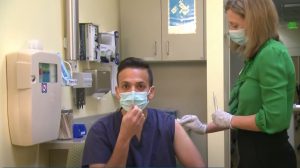NEW YORK (Reuters Health) – General surgery patients with elevated blood glucose levels after the operation have an increased risk of developing an infection at the surgical site, according to a study reported in the September issue of the Archives of Surgery.
“Aggressive early postoperative glycemic control should reduce the incidence of surgical site infection,” the authors state.
The researchers point out that diabetic patients are known to be prone to surgical infections. “The present study was undertaken to determine whether the presence of perioperative hyperglycemia, independent of the presence of preexisting diabetes, is associated with an increased incidence of surgical site infection,” they write.
The team conducted a retrospective review of the medical records of 2090 general surgery and vascular surgery patients. Postoperative blood glucose levels within 12 hours of surgery had been obtained in 803 of the patients.
Among general surgery patients, the incidence of surgical site infection was 1.8% with a glucose level no greater than 110 mg/dL and increased progressively up to 17.7% when glucose levels were 220 mg/dL or higher, the researchers report.
Compared with 110 mg/dL or lower, the unadjusted odds ratios for surgical site infection increased from 3.61 with glucose in the range 111-140 mg/dL up to 12.13 at the highest level.
While vascular surgery patients were almost twice as likely as general surgery patients to develop an infection, postop hyperglycemia was not associated with the risk, Dr. Ata and colleagues found.
They conclude, “If hyperglycemia is confirmed in future prospective studies with better postoperative glucose data to be an independent risk factor for postsurgical infection in general surgery patients, this would give surgeons a modifiable variable to reduce the incidence of postoperative infection.”
Arch Surg 2010;145:858-864.




